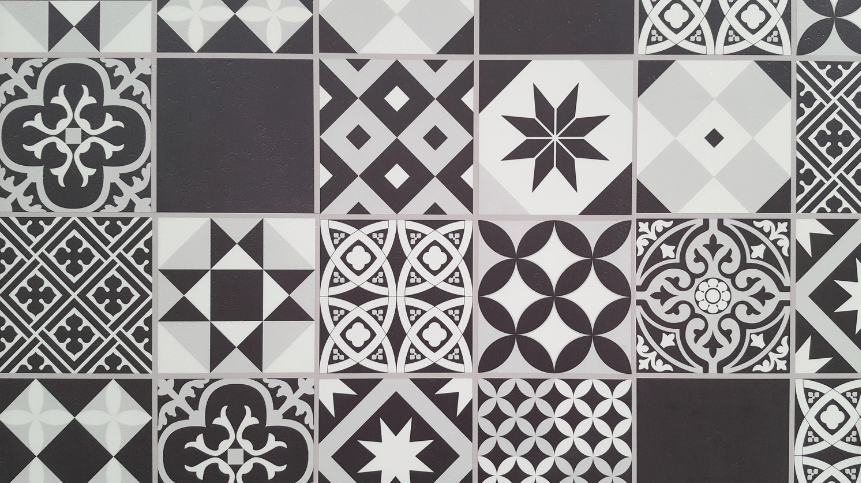Whether you are laying a wall or a floor, encaustic tiles are beautiful, and they are bold. Intricately handcrafted in colourful patterned designs, they are a vintage trend and having a moment again. Traditionally, encaustic tiles were made from clay, but modern versions are produced with cement and hydraulically pressed. This makes the surface highly absorbent and the tiles porous, meaning they require a particular level of care.
If you’re the proud owner of decorative floors or you install them for clients, this week, we’ve put together some handy hints and tips. Read on for the best cleaner for tiles plus installation advice; here’s how to keep encaustic tiles in perfect condition.
Start with a pre-grouting treatment
When it comes to the installation of tiles made from cement, it’s good to get a professional who has experience. Encaustic tiles are precious because they’re essentially handmade, and extra care should be taken when laying. To avoid any shifting or cracking, encaustic tiles should be laid on a solid base. During this process, they should also be kept meticulously clean as this can stain and potentially ruin the tiles.
We recommend using a pre-grouting protective agent such as PRW200, which is a water-repellant and water-based protector. Making a temporary seal, this means the grout is able to dry and you’ll avoid the ‘picture-frame’ effect when cleaning.
Perform the initial clean with a stain removing detergent
Encaustic tiles are unique, and so is our method when it comes to the initial clean. An exclusive approach compared to any other stones, the process involves FILA’s best-selling stain-removing detergent. Because concrete is a sensitive product, susceptible to acid attack, FILA’s PS87 PRO is the one for the job. This de-greasing agent is powerful enough to remove tough stains such as grouting residues yet remain gentle on the tiles.
Dilute this alkaline cleaner in water (1:5) and apply with a cloth, leaving for 4-5 minutes before rinsing thoroughly. For the long-term maintenance of encaustic cement tiles, we suggest using a pH neutral cleaner.
Treat to protect from stains
Encaustic tiles are microporous, which means they can absorb a lot of moisture and dirt. For this reason, they must always be sealed to protect the material and prevent any unsightly staining. FILA’s MP90 ECO XTREME is an eco-friendly stone sealer that reduces absorption without affecting the tiles natural appeal. This water-based protector will keep your tiles tip-top throughout the course of their life and can be walked on after just 4 hours.
Another option is FILA’s solvent-based sealer, FOB XTREME, which obstructs the absorption of common water stains. This sealant will also protect encaustic cement tiles and can cover approximately 5-15m²/per litre depending on the porosity of the stone.
Apply an optional wax
For waxing encaustic tiles, we suggest MATT, which will protect the surface from regular wear and tear. This natural-effect protective wax also restores tile colour and is ideal after the application of a water-based sealer.
How to clean encaustic tiles
Want to know how to clean encaustic tiles? We’ve got you covered, including the best cleaner to use for lasting beauty! First of all, it’s essential to be gentle when cleaning; cement tiles can be fragile and make sure to use only the kindest of products. Never use bleach or acidic products on encaustic tiles, as these will simply damage the stone. Instead, a pH neutral cleaner is the most common way to clean and protect cement floors. FILA’s CLEANER PRO has been designed for all floors, including encaustic tiles, natural stone and terrazzo. CLEANER PRO is also highly concentrated, so it goes a long way and, with regular use, will keep your tiles looking their best.
Additional special cleaning instructions
Life can be busy, and so it makes sense to plan ahead for those occasional spills. Some common household stains include oil and red wine, which can stick around if not immediately cleaned. The faster a stain is tackled, the easier it is to remove, although some may require special treatment. In this instance, FILA’s stain removers are specially formulated for marks where normal cleaners have no effect.
Thank you for reading our post; we hope you enjoyed and have all the information you need. If you have any other questions on how to clean encaustic tiles, why not post them in the comments? We’ll be sure to get back to you!
